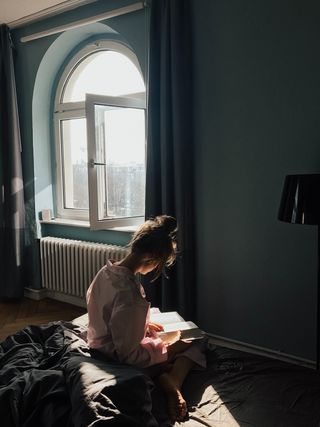Friends
How to Best Use Winter Break
Don't let the holidays slip by without planning for the Spring.
Posted December 30, 2019
Students are home for the holidays, sleeping in late, eating too much, and generally hanging out. While taking a break is super important, having too much time off can become a stressor in and of itself. Depression, anxiety, substance use, and low motivation all can take a stranglehold when students feel bored.

I'm definitely not saying that students should be super scheduled from 8 a.m. till they crash on their pillows at night, but they can significantly benefit from having a bit of structure.
Why is a structure over vacation so important?
All of us have ideas of how a vacation or holiday break will go and what feelings and experiences we will have. We create expectations based on ideals. The problem is, our imagination does not include the non-interesting hours that occur in between the exciting ones.
That boring time between getting up in the morning, having breakfast, and then trying to figure out what to do till friends start DMing plans for hanging out at night. Hours of waiting for something interesting to happen. The expectation leading up to break is "I'm going to hang out all the time with friends!" yet the reality within a few days of being home is "Uhhhh, it's 11 a.m., and nothing is happening till 9 tonight... guess I'll go back to sleep."

Having a plan for a break helps students feel more connected and also creates a sense of predictability and purpose which (...wait for it...) decreases anxiety. The unknown (and unscheduled) aspects of life can be overwhelming. Having planned interactions or to-do list items on a calendar may not be the most interesting ways to fill a day, but when one considers which is more boring—sitting at home in pajamas watching Game of Thrones for the 100th time or getting stuff done like sending unwanted presents back to Amazon, going to the gym for an hour, or going out to lunch with a grandmother (preferably their grandmother)—most students would rather at least be busy doing something.
Options should not be considered Great! or Awful—the options should be considered effective or ineffective, or productive and non-productive. Relaxation can be considered effective, but only for a healthy amount of time. A good example (though extreme) is when people talk about how they love sleeping and hanging out in bed. Sounds nice and chill, but stay in bed too long, and humans pretty quickly develop back pain and bed sores.
Another reason to have a bit of a plan for the break is so that parents don't develop a sense of frustration at the missed opportunity. Parents may totally love their kiddos being home and simultaneously feel resentment that they're not participating more in their own life, like finding an internship for the summer, making some money for the next semester, or, at a minimum, cleaning their bedroom.

I recommend to parents that they set expectations (boundaries) around how time will be spent during the break—no different than setting limits around when they can have friends over at the house and what they're not allowed to do (e.g., smoking weed in the basement).
Having a conversation (or text exchange) with your kiddo as they're heading home is a great time to let them what the expectations are. Let them know you expect him/her to work 10 hours per week, apply to at least five internships, visit with their grandparents at least once before New Year's. These are just examples. To be most effective, these expectations or goals need to be Specific, Measurable, Attainable, Reasonable, and Time-Sensitive (SMART). I'm not suggesting your exhausted little scholar needs to be busy 80 hrs per week with work, volunteering, and social commitments—just some basic to-do items for each day (preferably early in the day).
The last category of "how to spend winter break" is planning for the next semester and, more specifically, scheduling with a therapist, academic advisor, and any other professionals, whether health or academics-related, who require appointments.

Getting on the schedule, especially with psychiatrists (for medication management) and therapists, can be challenging. Most parents and students start looking and scheduling once the semester starts. By then, though, most professionals are already booked out several weeks. Don't be that client!
Make sure to pull up the Spring semester class schedule and get organized with everyone. I even recommend getting scheduled with dentists and doctors.
Less professional but nonetheless important are the other items that can be scheduled. This is a great time to figure out what yoga classes might work or plan for volunteering on weekends—whatever your student has talked about wanting to do outside of classes that can be organized and scheduled.
The take-home message here is the best version of winter break is a healthy balance between relaxation and being productive.


